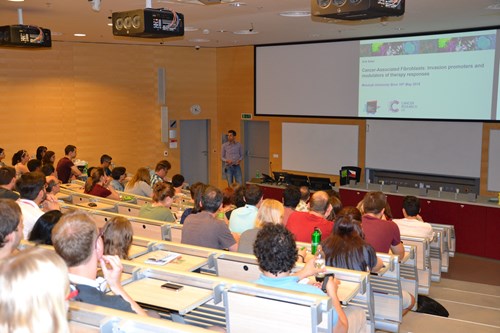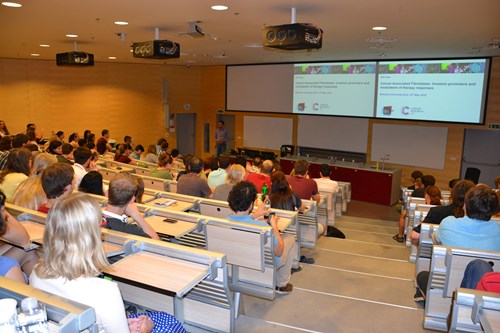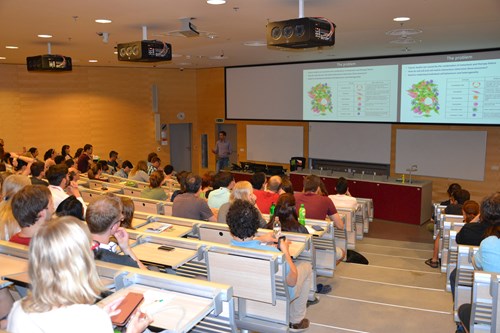About the lecture
We will present data on the mechanism of cooperation between cancer cells and stromal fibroblasts. Many tumors show an initial response to targeted therapies before genetic resistance emerges, however little is known about how tumor cells tolerate therapy before genetic resistance dominates. We show how the ECM generates a ‘safe haven’ in which melanoma cells can tolerate targeted therapy [1]. This supports the population of cancer cells from which genetically resistance emerges. In particular, we demonstrate a key mechanism fibroblast – cancer cell cross-talk via the ECM that depends on integrin β1, FAK, and Src signaling to support melanoma cells in the face of targeted therapies.
We have recently uncovered a novel mechanism of tumour – stroma cross-talk involving a pathological heterotypic cell-cell contact. In normal skin, epithelial cells and fibroblasts do not contact because they are separated by a basement membrane. However, a signature feature of tissue damage and invasive squamous cell carcinoma is breakdown of the basement membrane, epithelial cells and fibroblasts can then contact each other. This heterotypic can transmit force and enable invasion [2]. More crucially, it triggers dramatic changes in chemokine, cytokine, and other inflammatory modulators triggering anti-microbial and anti-viral responses. We propose that this cell adhesion interface represents a tissue level damage sensing mechanism.
[1] Intravital imaging reveals how BRAF inhibition generates drug-tolerant microenvironments with high integrin β1/FAK signaling. Hirata E, Girotti MR, et al., Cancer Cell. 2015
[2] A mechanically active heterotypic E-cadherin/N-cadherin adhesion enables fibroblasts to drive cancer cell invasion. Labernadie A, Kato T, et al., Nat Cell Biol. 2017


